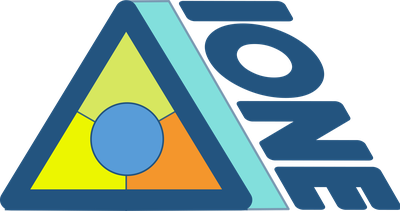DIONE
ERASMUS Strategic Partnership KA226 (2021-2023)
 Digitalising mobility and international networks with open education
Digitalising mobility and international networks with open education
Description
The project addresses two issues that are on the agenda in the current situation with corona-conditioned low mobility and international cooperation: The digitalisation of university teaching and the development of alternative internationalisation formats.
We recognise, on the one hand, that the digitisation of teaching in conjunction with the quality requirements for academic education poses great challenges for individual teachers. On the other hand, the internationalisation of teaching and the European integration through student exchange is a major task for the universities. Mobility rates are to be increased, especially in the context of educational networks such as the European universities. However, parallel to this, the restrictions imposed by the pandemic in the medium term and by necessary reactions to the climate crisis in the long term will mean that more and more virtual mobility formats will have to be developed.
The project DIONE aims to develop an answer to these two challenges. To this end, the project will first develop innovative, open teaching courses in an international and interdisciplinary network within the humanities. These will address selected topics in the humanities in combination with digital research methods. Furthermore, the critical evaluation of digital data and methods is a core element of the courses. The developed courses will be offered in several digital formats and teaching formats. This increases the applicability on the part of teachers and ensures inclusive access. In addition, the courses contain units that are directed at the digital competences of the teachers themselves. The courses thus offer important digital, topic-specific and thus concrete, application-oriented competences on three levels: digital research methods for students, digital key and teaching competences for teachers and critical digital literacy. The courses comprise approximately five sessions, are multilingual and include examples of practice or application from different European cultural, linguistic, political or historical contexts researched by the partners.
DIONE project addresses the issue of mobility with another innovative element: The developed courses will be used in a second step to enable micro-collaborations between the teachers of the participating educational institutions. Micro-collaborations mean that teachers at two different universities use the multilingual content and formats of the open courses to enable their students to collaborate virtually with the students of the partner university for the duration of these courses. Since the courses are shorter learning units, integration into the ongoing teaching can be achieved flexibly. The use of the courses and the cooperation will be encouraged via a common portal. This is where the course materials can be downloaded. In addition, for each course and its learning or exercise units, contact details of teachers at the partner universities teaching this topic can be found.
The planned outcome of the project is thus, that university lecturers in the humanities use digital formats together to teach subject-specific digital skills and their critical handling. We plan to create a competence model for the addressed competences, compile the topic-specific learning content, create training material for the teachers, digitise the content in different formats and publish it on a joint platform. Finally, the courses will be tested in micro-cooperation and the results and recommendations will be published in a white paper. The results will be disseminated to the public in several multiplier events and training sessions.

Incentives:
We want to:
- Create open educational content that addresses selected topics and specific digital competences in the humanities and their critical evaluation
- Develop a multilingual, pluri-cultural, multi-perspective inclusive learning environment
- Enable and encourage teachers to use digital teaching methods and to produce open materials themselves.
- Develop a concept that enables the course contents to be used as a pivot for joint international virtual teaching within the scope of short study projects
- Provide consistently output and competence-oriented open teaching contents in order to strengthen the teaching quality
Partners:
- Humboldt-Universität zu Berlin (Circle.U)
- Unverzitet u Beogradu (Circle.U)
- Universidad de Granada
- Université catholique de Louvain (Circle.U)
- NGO Nauči me
- Universitetet i Oslo (Circle.U)
- University of Wolverhampton
Associated Partners:
- Universität Zürich
